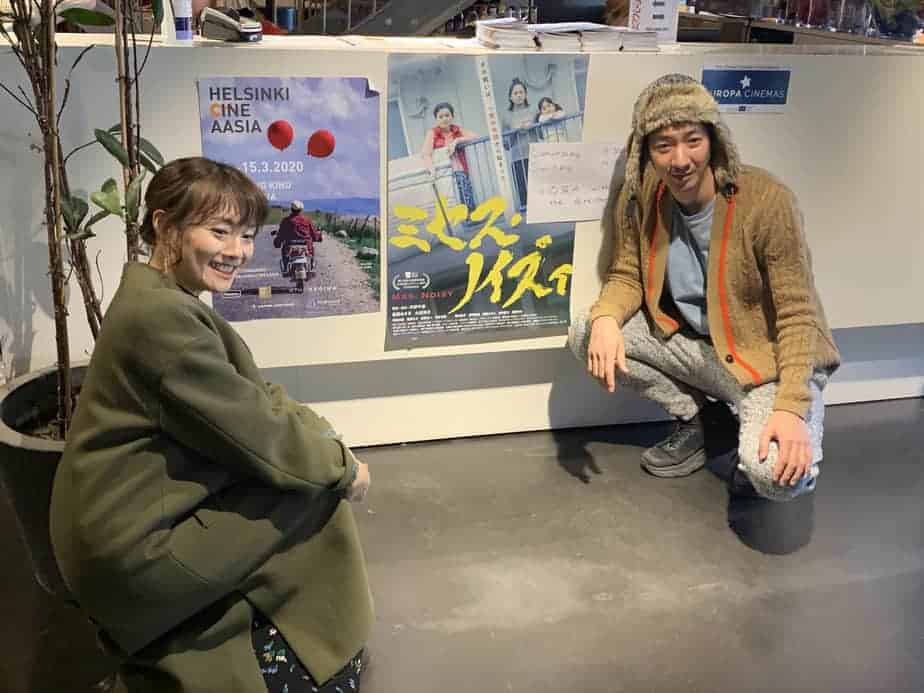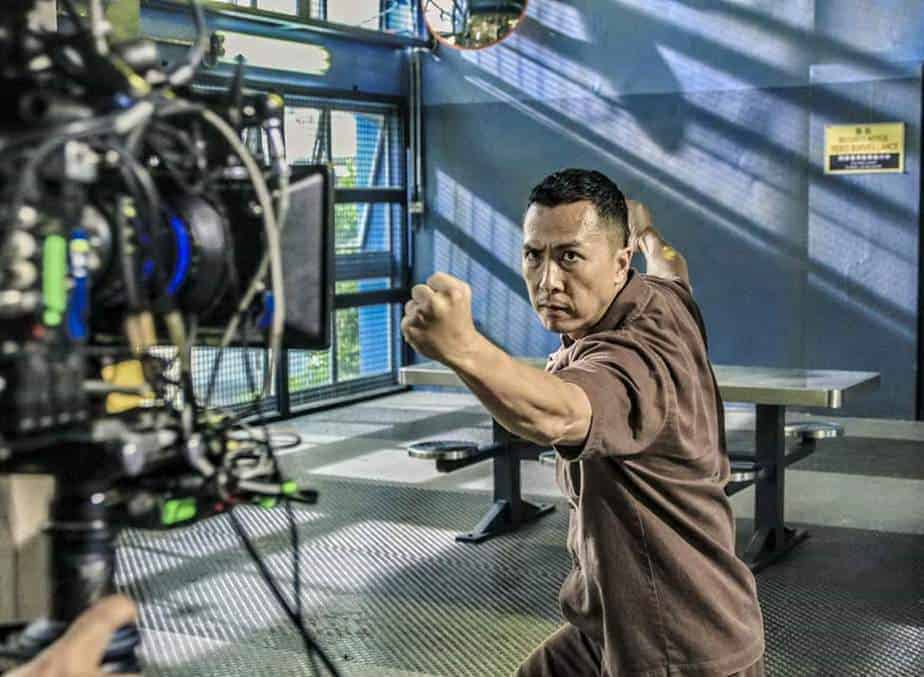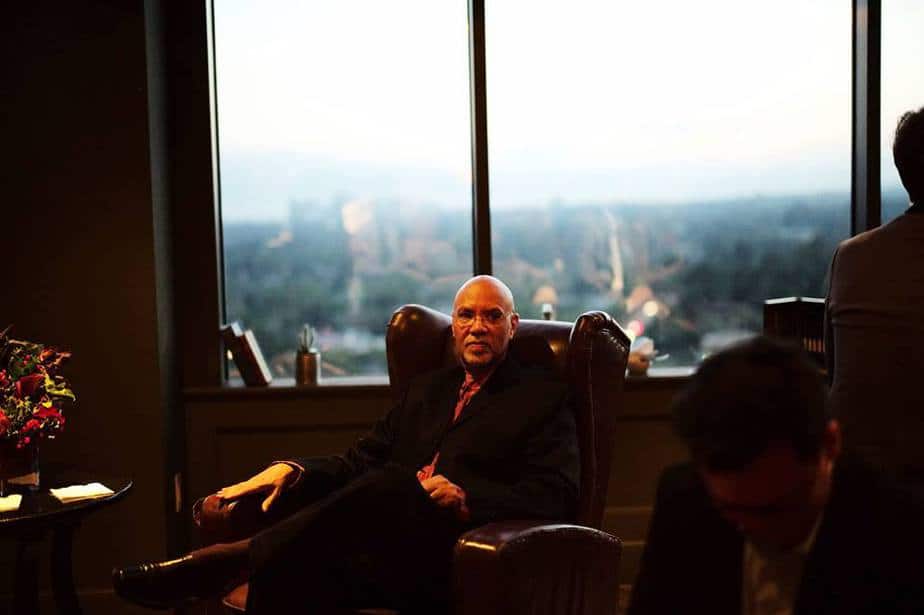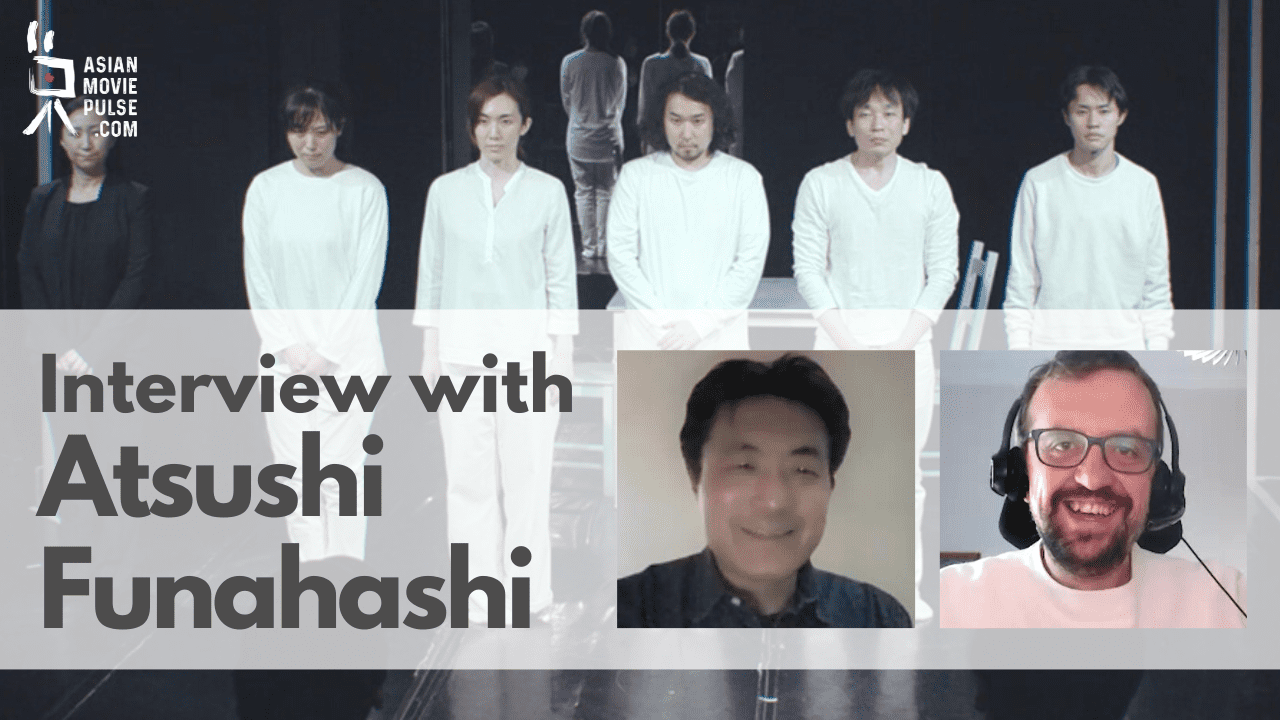After working in an office for 5 years, Chihiro Amano turned to film and became a film director and screen writer. Her short and feature films, such as “The Confession of Figaro” (2012) and “Leap Year Girl” (2014) won several awards at film festivals both in Japan and across the world. Her most recent feature, “Mrs Noisy” premiered at the Tokyo International Film Festival. Takuma Nagao is a Japanese actor. In “Mrs. Noisy” he plays the writer's husband. He is best known for his parts in “Our Little Sister” (2015) and “Being Natural” (2019).
During the Helsinki Cine Aasia Festival we spoke with both of them about black & white opinions, insects, the Japanese film industry and much more.
In the film, a lot of things happen because people only see each other's sharp edges and not the complete picture, is this an important theme for you?
Chihiro Amano: At the beginning of the film, the publisher tells the writer that she seems to see everyone in black and white. However, life is not black & white but there are these grey and non-defined areas and I wanted to make that one of the main themes of the film. So, I thought about a way to show that in the narrative. First you see the writer's and then the neighbour's side of the story, and they both have these extreme opinions. But after that, it goes on in a more general view of what the story is about.
And in this world with grey nuances not everything or everyone is perfect, like the crooked cucumbers?
Chihiro Amano: That's right. I wanted to use the cucumbers as a kind of metaphor explaining one of the themes of the film. The neighbour wants to appreciate the cucumbers that are not straight, but for the vendors these are just waste that they can throw away. I want to say that we should also look at weird shapes and things in life and not only appreciate what is perfect… and that extends to appreciating weird people.
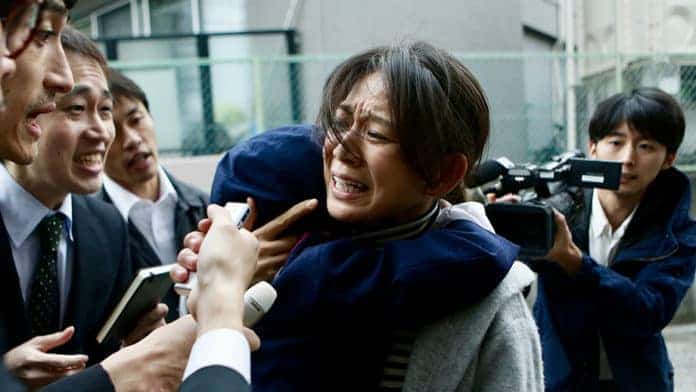
Was it also important to voice some criticism towards the role of social media?
Chihiro Amano: No, I was not really aiming to criticize social media even though sometimes they become sort of a weapon. In social media, very simple, black and white opinions rise to the top of every discussion, and that phenomenon I used for this film, by having the cousin, who seems like a friendly guy, making it all even worse with his videos and his idea of people having to be online to be successful.
Chihiro Amano: The cousin is young, and he thinks very lightly about different things, so he causes things to happen without thinking of the consequences or the influence he has. In the end, the events don't have an impact on him. I wanted to create a character that is going on in life at his own pace and that doesn't change. At the end, when he goes down the hill with the skateboard, he is still the same person as at the beginning of the film.
And the husband, he seems nice, but when you think of it, he's not really helping his wife or standing up for her.
Takuma Nagao: He's supporting his wife and his family, but he doesn't want to interfere much and leaves her alone because she is a writer and he thinks that is what she needs.
In a way this isolates her, and it puts their relationship under stress too.
Chihiro Amano: The film is about a fight between neighbours, but at the same time it is also about the couple. The writer and her husband are different types of people and once things start escalating, he kind of behaves like a typical Japanese husband/man. He doesn't interfere much in his wife's affairs, but at the same time, the writer feels like her husband is not supporting her. During the film, the gap between the couple gets wider and wider so at the same time it is also about a marital crisis. Also, I wanted to create characters who are not pictured as extremes but who are more human, like the husband and the cousin, who have their weaknesses, but they mean well.
I was wondering about the scenes with the insects. How did you film these?
Chihiro Amano: When I was writing, I thought that we could do the insects with computer graphics, but the film is made on a low budget and that was not enough to do this very expensive effects. So, the producer actually bought 26 insects at on online auction. We shot the scene with the real actor and released real bugs and because they had to do different angles, we had to collect them to shoot it again.
And did the actor mind?
Chihiro Amano: No Taichi Miyazaki, who plays the neighbour's husband, he had the stamina to do it. He did say that it kind of tickled and that it was an unpleasant feeling.
Takuma Nagao: laughs If they had asked me to do it, I would have refused.

The lead actresses both needed really good drama, and comedy, almost slapstick, skills. Was hard to find them?
Chihiro Amano: I organized kind of like a workshop that was part of the audition during the search for the actors and that's how we found Yoko Ootaka who plays the neighbour. Yukiko Shinohara, the actress who plays the writer, I knew her from before and I asked her to join because I knew she was a good choice for that part.
Do you recognize something of yourself in the character of the writer?
Chihiro Amano: We are in part similar. For instance, when I'm writing a script, I also shut out my husband and sometimes I don't realise what is happening to people around me.
And in relation to getting work and releasing films? Is the position of female directors in Japan similar to that of the writer?
Chihiro Amano: Traditionally, there have been a lot of female writers in Japan and the reason that her position is now weak is that she lately hasn't produced very good work. For female directors it's different, there are actually many young female directors coming up and they are making very interesting films. So, I think that, because of this, we will see a change in 10 or 20 years. However, when I look at my generation and the one before me, there are less active female directors. It seems that once we get married and give birth to children, we kind of stop making films. I have worked on different types of projects, like this film but also web dramas and more commercial work and after I gave birth 5 years ago, I also noticed that less jobs were coming my way. However, I'm not sure if that is because I gave birth or because of the film that I made before, as I feel that it wasn't very good. So, it's hard for me to say what is the reason for getting less commercial work. But nevertheless, it is very difficult to combine directing a film with the care of a child, especially because for those women whose husbands are very busy with their work and who can't participate in taking care of and raising a child…
Takuma Nagao: It is also due to the system of the film industry in Japan. For example, in America there is a rule that if you shoot a film there has to be a 12-hour break before you start shooting the next day. In Japan, rules like that don't exist. So, people might shoot until late at night for 10 days in a row without a free day and that makes the situation hard, especially for women with children. If the Japanese film industry would implement rules about things like this free time, that would make it easier for them to participate in film making.
Chihiro Amano: In Japan, they don't really have a union in the filmmaking field that gives directions and rules like in other countries, so maybe if there was a strong union it would be easier to make demands.
And of course, it's not just the film making but also the promotion afterwards, like attending festivals and screenings.
Chihiro Amano: Yes, it doesn't end with the film. For instance, my child is now in Japan and I was very sad that I had to leave it, and my husband, who is very busy, now has to take care of our child.
Takuma Nagao: When I was a child it was very common to give the child to a neighbour to look after but these days everyone stays very much in the family's bubble and they don't communicate that much… kind of like what is also happening in this film.


